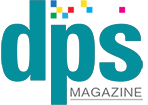03.09.2022
Global demand for flexo printing will reach $172.2 billion in 2022, with a total of 6.80 trillion A4 print equivalents produced, according to exclusive new data from Smithers.
Comprehensive forecasts published today in The Future of Flexographic Printing to 2027 are that a compound annual growth rate (CAGR) of 1.9% will increase demand to $188.9 billion over the next five years (at constant prices). Across the same period volume growth will increase at a faster 2.5% CAGR seeing output reach 7.68 trillion A4 print equivalents in 2027.
As the market evolves flexo will benefit from continuing growth in demand for packaging print and labels as an increasingly cost-competitive alternative to gravure and offset litho in these applications; but does also face the risk of losing some market share to higher throughput inkjet presses, in narrow web and corrugated segments over the Smithers forecast period. Corrugated print will remain the largest segment of the flexo print market – with a 36.8% share by volume in 2022. Flexible packaging print is becoming increasingly significant, and will be the fastest growing of the nine major applications tracked in Smithers’ analysis.
There will be new demand across 2022-2027 for more printed paper towels, and other sanitary and kitchenware. This is a consequence both of increased cleaning regimes implemented to control Covid-19 infections, and the shift away from alternative polymer cleaning materials prompted by single-use plastics legislation.
Simultaneously the longer term impact of widespread social distancing and shifts in consumer preferences for media means demand from graphic applications (envelopes, greeting wrap, etc) and publications (mainly newspapers) will trend downwards.
Markets in Western Europe are essentially mature. There is new demand for flexo equipment emerging in the Americas. Demand for flexo output is accelerating across much of Asia, led by China and India – potentially the world’s two largest markets for purchases of printed FMCGs. Sales for new equipment will be muted across the region, however. Instead the Americas will provide the best new sales opportunities for flexo press manufacturers through to 2027.
The need to produce shorter print runs, and manage new demands for variable data print, will stimulate further development of hybrid (flexo inkjet) configurations, and the adoption of computer to plate (CtP) and other automation features, and in-line finishing to improve order turnaround. Another important development for press OEMs is the demand for medium web-width flexo machinery, with specialists in both narrow web label and wide-format central impression (CI) facing different challenges to adapt to this. Another focus for R&D is the effective integration of electron beam (EB) curing stations and inks for flexo print, which especially suited for high speed print on newly popular monomaterial flexible plastics substrates.
In the short term the flexo market is having to adapt to rising raw material prices, which are affecting the cost of inks, other consumables, and printing plates. As plate supply moves towards stabilisation across 2022, interest in a lower environmental profile for print jobs will foster wider interest in water wash flexo plates, and improvements in anilox roller technology on press.
The Future of Flexographic Printing to 2027 provides unparalleled detail on this major print market as it negotiates pressing contemporary challenges and adapts to longer term changes in print market dynamics. Contextualised by expert profiles of the latest technology trends, Smithers historic data analysis and forecasts (2017-2027) are quantified in an exclusive data set with over 100 data tables and figures segmenting this market by end-use application, geographic region and national market.
This vital business strategy tool is available to purchase now priced $6,750 (€5,950, £4,950).



